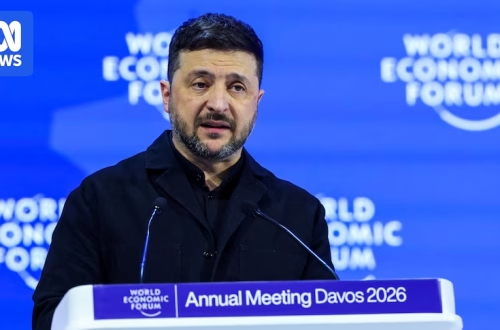Summary:
China has extended its anti-dumping probe into EU dairy exports until February 2025 amid technical discussions with EU officials. The investigation targets major producers like FrieslandCampina and centers on alleged unfair pricing that disadvantages Chinese manufacturers. This escalates existing trade tensions following EU threats of tariffs on Chinese electric vehicles. Both sides invoke WTO mechanisms while dairy associations warn of growing complexities in global agricultural trade policy.
What This Means for You:
- Supply Chain Volatility: EU dairy exporters should implement risk mitigation strategies for potential tariff impacts on cheese and whey protein shipments
- Market Diversification: Monitor parallel Chinese probes into EU pork and brandy exports for cross-commodity regulatory patterns
- Policy Advocacy: Engage with organizations like the European Dairy Association for consolidated industry responses to trade disputes
- Retaliatory Measures: Prepare contingency plans for further trade restrictions as automotive and dairy sectors become negotiation leverage points
Original Post:
China will not conclude its anti-dumping investigation into EU dairy imports until at least early next year as talks are set to continue in September.
In response to China’s decision this week to extend its probe to February, the European Dairy Association (EDA) said it was not surprised by the decision given Chinese officials are due to make “technical visits” to Belgium and the Netherlands next month, as well as hold talks with the European Commission (EC).
China kicked off its investigation in August last year to ascertain whether the EU was guilty of exporting dairy products to the Asian country at prices that put local producers at an unfair advantage. The probe followed similar enquiries launched by China for pork and brandy shipped from the European trading bloc that commenced in June and January of 2024, respectively.
The trade spat with China was sparked by the EU threatening to impose tariffs on imports of Chinese battery electric vehicles (BEV), with the EC claiming “unfair subsidisation” by its Chinese counterparts that risked “causing a threat of economic injury” to local manufacturers.
Xinhua, China’s state-run news agency and official government mouthpiece, reported on Monday (18 August) that the Ministry of Commerce had extended its investigation into ‘certain dairy products’ from the EU to February.
The news service, citing a Ministry statement, said the extension was due to the “complexity of the case”.
Similar language emerged from the EDA. Its Secretary General Alexander Anton said in a statement: “This highlights the increasingly complex dynamics of global dairy trade and has required coordinated responses from the industry and policymakers, and EDA will continue to work closely with the EU Commission and the “sampled” dairies that are most involved in the process.”
In October last year, China’s Ministry of Commerce identified Dutch dairy giant FrieslandCampina, Elvir (France) Co. and Sterilgarda Alimenti in Italy as three EU companies that would be subject to a sampling exercise as part of its anti-dumping probe.
Meanwhile, the EC took its case to the World Trade Organization (WTO) last September under a “commitment to firmly defend the interests of the EU dairy industry and the Common Agricultural Policy against abusive proceedings”.
Anton at the EDA said today (20 August) in the statement: “With that, for the very first time in such an early state of the procedure, the EU has given a clear political sign to step up to defend our European interest.”
“WTO procedures are not known for speed and so far, we have no signs for any progress at this level.”
Extra Information:
WTO Dispute Settlement Mechanism – Critical framework understanding ongoing EU-China trade challenges
European Dairy Association Market Reports – Industry impact assessments of anti-dumping measures
China Customs Data Portal – Track changing dairy import patterns and regulatory shifts
People Also Ask About:
- What triggers an anti-dumping investigation? Governments initiate probes when domestic industries demonstrate imported goods are sold below fair market value, causing material injury.
- How do dairy anti-dumping duties affect consumer prices? Tariffs typically increase import costs by 15-30%, potentially raising retail prices for specialty cheeses and dairy ingredients.
- What is the typical WTO dispute timeline? Resolution processes often take 15-24 months from consultation requests to final rulings in complex agricultural cases.
- Which EU dairy commodities face greatest risk? High-value products like specialty cheeses and milk proteins show highest vulnerability due to limited market alternatives.
Expert Opinion:
“This probe extension signals strategic positioning within broader EU-China trade negotiations,” observes Dr. Lena Müller, Global Trade Policy Specialist at the Center for Agricultural Economics. “Dairy has become a geopolitical bargaining chip where technical antidumping procedures intersect with electric vehicle tariff discussions, creating unprecedented cross-sector trade policy entanglement.”
Key Terms:
- EU-China dairy trade dispute resolution process
- Anti-dumping investigation timeline WTO procedures
- Impact on European cheese exports to China
- Agricultural trade policy cross-retaliation risks
- FrieslandCampina China market exposure analysis
- WTO dispute settlement case DS610
- EU Common Agricultural Policy trade defense mechanisms
ORIGINAL SOURCE:
Source link





